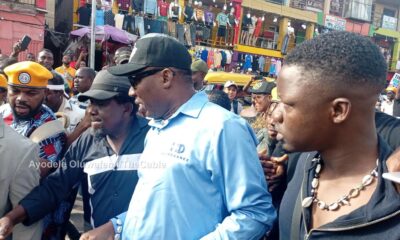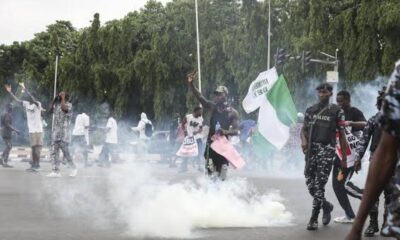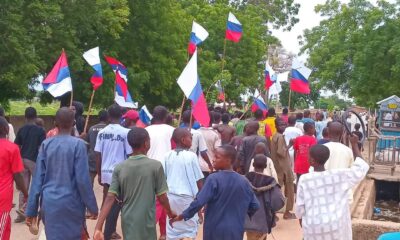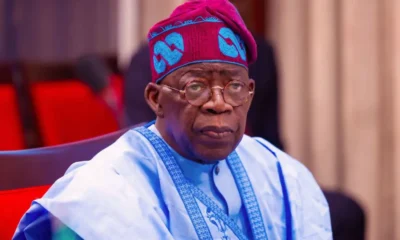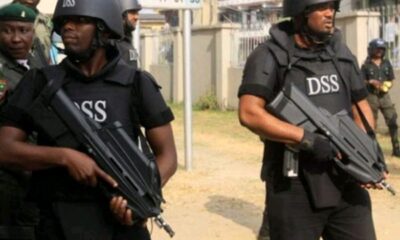The Nation
17 feared dead in nationwide #EndBadGovernance protests
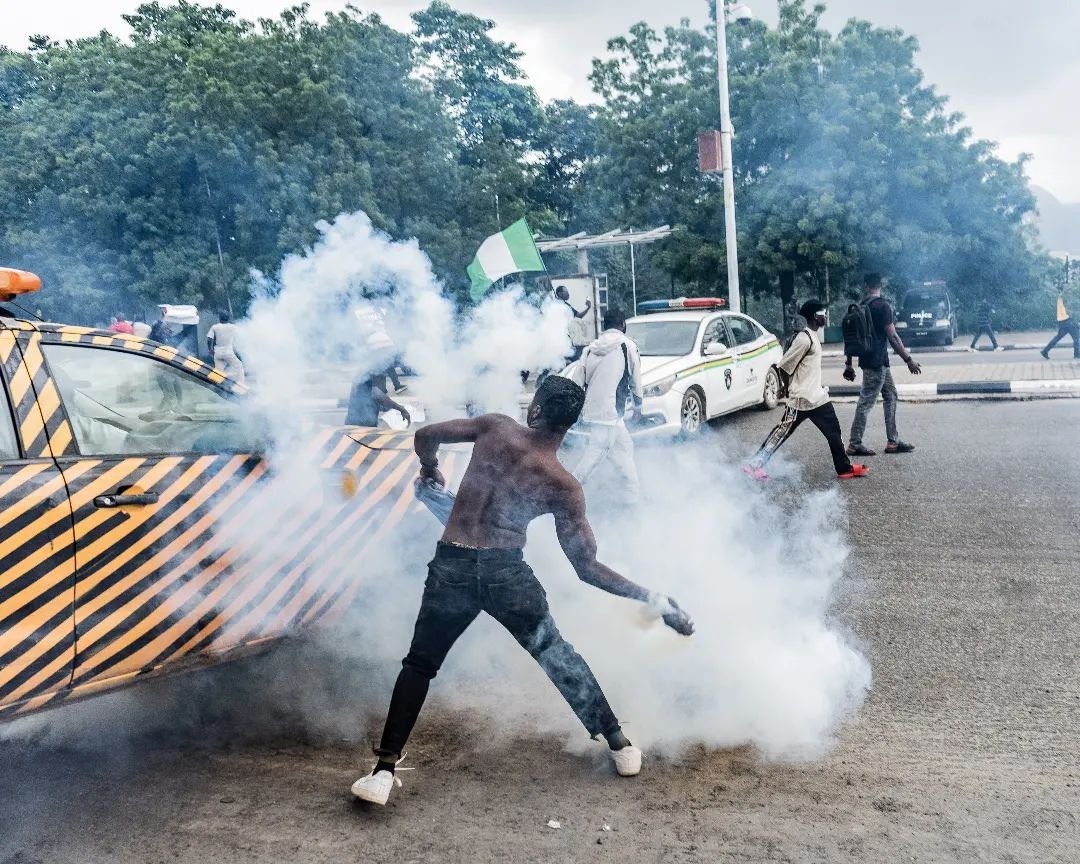
At least 17 people were feared killed during the #EndBadGovernance protests that swept across Nigeria on Thursday.
The demonstrations, which took place in multiple states, turned deadly as clashes erupted between protesters and security forces.
In Abuja and Kano, one person was reportedly shot dead in each location. Two fatalities occurred in Jigawa, while security forces allegedly gunned down six protesters in Niger. Four people were killed in Borno, and three more lost their lives in Kaduna. The violence highlights the escalating tensions and urgent demands for change across the country.
The rally began peacefully but turned violent in some cities, leading to confrontations between the police and protesters.
Businesses, banks, shopping plazas, and some markets did not open for fear of the protests escalating into a crisis.
In Abuja, a victim was shot dead along the Kubwa expressway. An eyewitness, Ekaete, said the man was gunned down after protesters became violent and blocked the highway.
“I was waiting for a bus on the expressway when the protesters in their numbers blocked the highway and harassed motorists. But as they became violent, the police fired live shots, killing the young man. Everybody took off on seeing the man fall,” she narrated.
The police had another encounter with protesters at Eagles Square, Three Arms Zone, near the Presidential Villa. Security operatives fired teargas canisters to disperse the protesters.
Shortly after, the Minister of State for Youth Development, Ayodele Olawande, arrived and attempted to address the protesters but was shouted down. He called for calm, stating he wasn’t there to shut down the protest but to encourage civility.
“I’m not here to fight you, I’m not here to ask you not to protest, it is your right. Like I said, I’ve been to over 100-500 protests,” Olawande stated.
However, the situation escalated as the operatives fired more teargas and pepper spray, dislodging the protesters by 10:30 am after firing warning shots at the ground.
In Kano, hoodlums looted the NCC Industrial Park. Five busloads of pro-government protesters were brought to counter the protest. One of them admitted they were promised N5,000 each to stage a counter-protest.
The Director of Mobilisation, Take It Back Movement, Damilare Adenola, said the protest would continue until President Bola Tinubu acceded to their demands. Protesters are demanding the reversal of the petrol pump price to N100/litre, an end to insecurity, the closing of IDP camps, and electoral reform.
Elsewhere in Abuja, protesters blocked the main road linking Karu-Kurudu and Karshi, chanting anti-government slogans. Two persons were reportedly hit by stray bullets in Mararaba, Karu Local Government Area in Nasarawa State.
As tension increased, FCT Minister Nyesom Wike called for dialogue, saying the government was willing to discuss with the youths.
In Niger State, six people were reportedly killed by the police while 11 persons were arrested for attempting to set ablaze Tafa LGA secretariat. The police spokesman, SP Waisu Abiodun, confirmed the incident.
Four people were reportedly killed in Borno after suspected Boko Haram members infiltrated a protest over the rising cost of living. Thirty-four others sustained injuries.
Following the violence in Kano, Governor Abba Yusuf imposed a 24-hour curfew on the city, blaming the riot on “enemies of progress.”
The Kaduna State police command confirmed an attack on government offices by suspected hoodlums. The spokesman, Mansir Hassan, said 23 suspects were detained.
In Gombe State, one person was feared killed during the rally, but the Commissioner of Police, Hayatu Usman, denied the incident.
In Lagos, protesters marched from Ikeja Under Bridge to Gani Fawehinmi Park in Ojota. The protest was largely peaceful, although police fired teargas to disperse some protesters at the Lekki Toll Gate.
Residents of Enugu, Umuahia, Aba, and Ebonyi largely observed a sit-at-home, paralyzing economic and social activities. In Delta State, reporters covering the protest were attacked by anti-protest protesters.
In Akwa Ibom, police restrictions and a downpour disrupted the protest. Protesters converged on Unity Park but were deterred by the rain and police presence.
In Bayelsa State, some shops that were shut in the morning reopened for business as the situation remained calm. Hoodlums tried to hijack the protest in some areas on the outskirts of Benin City.
The state witnessed the closure of businesses as youths barricaded the roads in Benin and participated actively in the protest. The state Commissioner of Police, Funsho Adegboye, commended them for their peaceful conduct.
(PUNCH)


